SDG 14 in Saudi Arabia: Life Below Water
Sustainable Development Goal 14 (SDG 14) focuses on conserving and sustainably using the oceans, seas, and marine resources for sustainable development. Although Saudi Arabia is primarily a desert nation, it has a significant coastline along the Red Sea and the Arabian Gulf. Protecting marine ecosystems is crucial for biodiversity, economic growth, and the livelihoods of coastal communities.
Saudi Arabia’s Approach to SDG 14
Marine Conservation Policies:
The Saudi government has introduced several marine conservation efforts to protect the Red Sea and Arabian Gulf's ecosystems. These policies aim to preserve marine biodiversity and reduce pollution, particularly from oil spills, industrial activities, and unsustainable fishing practices.
Saudi Green Initiative – Coastal and Marine Protection:
The Saudi Green Initiative, launched in 2021 as part of Vision 2030, includes initiatives to preserve marine and coastal environments. It focuses on restoring degraded ecosystems, protecting coral reefs, and improving the overall health of marine habitats. The initiative also emphasizes enhancing marine protected areas and ensuring the sustainable use of marine resources.
Regulating Fishing Practices:
The Saudi government has implemented regulations to ensure sustainable fishing practices, prevent overfishing, and protect endangered species. Through the Ministry of Environment, Water and Agriculture, the government enforces measures such as quotas, seasonal restrictions, and protected zones to maintain fish populations and protect marine biodiversity.
Marine Protected Areas:
Saudi Arabia is expanding its network of marine protected areas (MPAs) to safeguard critical habitats such as coral reefs, mangroves, and seagrasses. For example, the Farasan Islands in the Red Sea is a designated MPA, playing a key role in conserving biodiversity and supporting sustainable tourism.
Research and Development:
The Kingdom has made significant investments in research and monitoring of its marine ecosystems. Institutions like KAUST (King Abdullah University of Science and Technology) conduct extensive research on marine biodiversity, coral reef health, and oceanographic data to inform policies that enhance marine conservation efforts.
Pollution Control and Waste Management:
The government is working to reduce pollution from coastal cities, industrial facilities, and shipping activities. Initiatives to improve wastewater treatment, reduce plastic pollution, and prevent oil spills are central to protecting marine ecosystems.
Majmaah University and SDG 14
While Majmaah University is located inland, far from coastal areas, it plays a supportive role in advancing SDG 14 through research, education, and community engagement related to environmental conservation and sustainable practices.
Research on Environmental Conservation:
Majmaah University encourages research related to environmental conservation, with a focus on water resources, ecosystems, and sustainability. Through its research centers and collaboration with other institutions, the university contributes to understanding the broader environmental challenges, including the health of marine ecosystems in Saudi Arabia.
Educational Programs on Sustainability:
The university offers educational programs and courses that promote sustainability, environmental science, and conservation. While not directly focused on marine ecosystems, these programs raise awareness about the importance of protecting natural resources, including oceans and water bodies, as part of the broader environmental context.
Community Awareness Campaigns:
Majmaah University engages with local communities through outreach programs, emphasizing the importance of environmental protection. These initiatives include promoting responsible consumption, reducing waste, and protecting natural habitats, which are indirectly aligned with marine conservation goals.
Collaborations and Partnerships:
Majmaah University collaborates with national and regional organizations that are directly involved in marine conservation efforts. These partnerships allow the university to contribute to SDG 14 by sharing research findings, participating in sustainability projects, and engaging in initiatives that support marine biodiversity conservation.
Sustainable Resource Management on Campus:
Although the university is not directly involved in marine protection, its commitment to sustainable resource management on campus, including water conservation and waste reduction, reflects broader sustainability principles that contribute to environmental protection, indirectly supporting the goals of SDG 14.
In Saudi Arabia, SDG 14 is being addressed through comprehensive marine conservation policies, sustainable fishing regulations, pollution control, and marine protected areas. The government’s efforts, particularly through the Saudi Green Initiative, underscore the importance of safeguarding marine ecosystems and ensuring the sustainable use of marine resources.
Majmaah University, while located inland, supports these national efforts by promoting environmental conservation through research, education, and community engagement. The university’s focus on sustainability and resource management aligns with the broader goals of SDG 14, contributing indirectly to the protection of marine life and the responsible use of natural resources.
Flood & Rain Plan – 1444
https://www.mu.edu.sa/en/administrations/department-of-occupational-and-environmental-health/207261
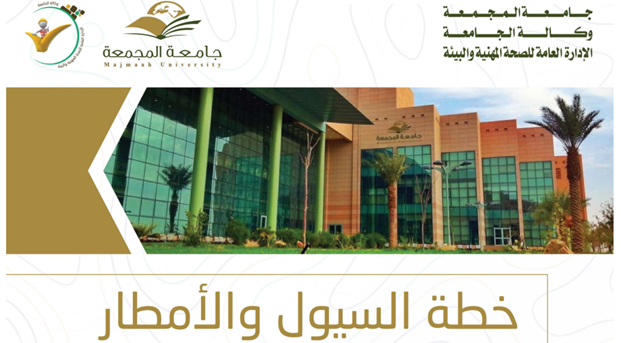
Water Unit
https://www.mu.edu.sa/ar/colleges/college-of-science-and-human-studies-at-hotat-sudair/59261

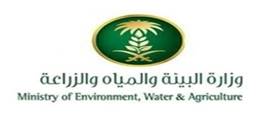
|
|
|
|
|
|
| About the Department and its services: |
|
|
|
|
|
|
|
|
Water Treatment Process Flow
https://www.mu.edu.sa/sites/default/files/content/2015/12/666.pdf
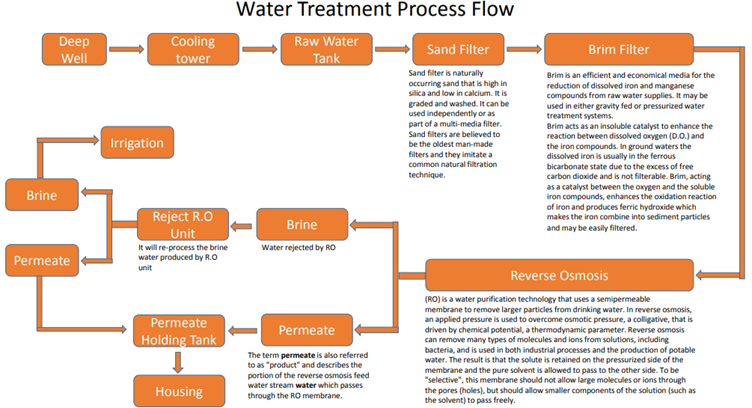
Quality control of water at the laboratory
https://www.mu.edu.sa/sites/default/files/content/2016/01/7777_0.pdf
Quality control of water at the laboratory includes daily, monthly, and periodic chemical and microbiological tests, in accordance with the specifications of GSO 149/2014. The purpose is to ensure the quality of the water supplied to the various facilities of the university. The laboratory consists of several units that share tasks and activities:
Sample Receiving Unit:
This unit receives samples sent to the laboratory from various locations within the university and the community.
Microbiological Testing Unit:
In this unit, the detection of any microbial contaminants is performed, whether they pose a risk to public health.
Chemical Testing Unit:
This unit conducts various chemical tests on water samples.
On the sidelines of the Environment Week: The Vice President receives the delegation of the branch of the Ministry of Environment, Water and Agriculture in Majmaah Governorate
https://www.mu.edu.sa/ar/news/general/191121
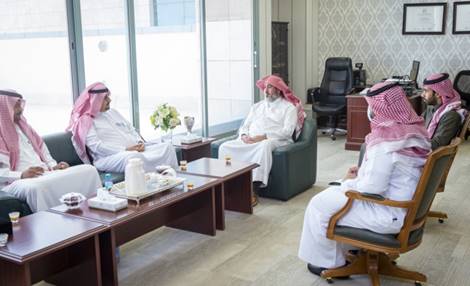
On the sidelines of the Environment Week and the accompanying exhibition, which was held by the university represented by the General Administration of Occupational Health and Environment in the lobby of the college complex in the university city with the participation of a number of government agencies, associations and associations specialized in the environment, the Vice President of the University, Prof. Dr. Muslim bin Muhammad Al-Dosari, received in his office a delegation of the branch of the Ministry of Environment, Water and Agriculture in Majmaah Governorate.
During his meeting with the delegation, His Excellency the Vice President discussed aspects of cooperation between the university and the Ministry of Environment and Water through the programs offered related to the environment, and discussed the Green University project, which was approved by the university by preparing and monitoring all the needs of this project to start in cooperation with the Ministry of Environment and Water.
The delegation presented the Vice President with a commemorative shield on the occasion of the university's contribution to integration and supporting the efforts of the Ministry of Environment and Water by activating such events, which aim to contribute to spreading the culture of environmental sustainability, preserving it, and combating desertification in areas within the geographical scope of the university.
At the end of his meeting, the Vice President of the University expressed his thanks and appreciation to the delegation and the Ministry of Environment and Water, appreciating their efforts and role in promoting environmental awareness and protecting and preserving the environment.
The College holds a training course entitled: (Groundwater Detection Methods)
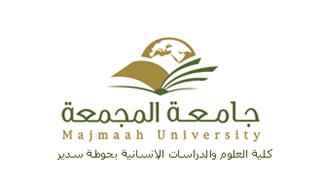
Within the framework of the college's relentless endeavor to serve the local community and the surrounding areas, the Department of Physics, in conjunction with the Community Service and Continuing Education Unit, organized a training course entitled: (Methods of Detecting Groundwater) on Monday, 9/8/1437 AH in the protocol hall of the college, presented by Dr. Mahmoud bin Jaballah Abdel Mawgoud, Assistant Professor at the Department of Physics at the college, and the target group of the course were: (Agriculture Office, Water Unit, Municipal and Rural Affairs in Hotat Sudair), and the course aims to develop the skills of participants in identifying methods of detecting groundwater using satellite images and field geophysical measurements, where the course themes focused on the following:
An important introduction to groundwater, types of water-bearing rocks, and types of underground reservoirs.
Satellite and Remote Sensing Images.
Field measurements using geophysical methods (Near Surface Geophysical Measurements).
Open dialogue for discussions and interventions.
At the beginning, reference was made to the distributions of the proportions of the presence of water on the surface of the earth, then the transition to the types of water-bearing rocks and with the mention of the types of underground reservoirs in the Kingdom of Saudi Arabia, including the main reservoirs such as the Wajid aquifer, the Suk reservoir, the Tabuk reservoir, the Minjur and Dhurma reservoir, and the Dammam underground reservoir, as well as secondary aquifers, including, for example, the Hofuf reservoir, Sakaka, and Al-Jawf reservoir.
After that, a set of slides were presented that illustrate the use of satellite images (images of drainage basins and topographic terrain with the direction of water flow, thermal data images from satellites, and photographic radar images using electromagnetic waves).
Models for the use of field measurements by geophysical methods used in the detection of groundwater were also presented, including:
Electric resistivity method: Electric resistivity method
Time domain Electromagnetic method
At the end of the course, the attendees expressed their gratitude and deep thanks to the Deanship of the College for organizing such important and useful courses, and certificates of attendance were distributed to the participants in the course from outside the college.
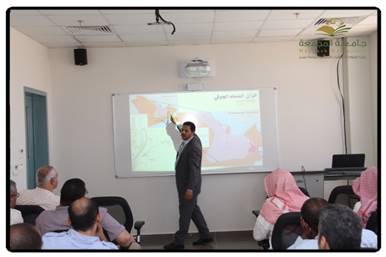
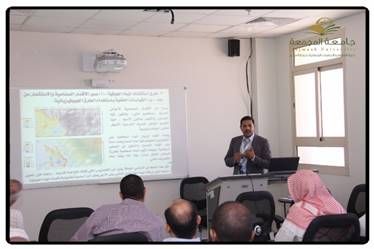
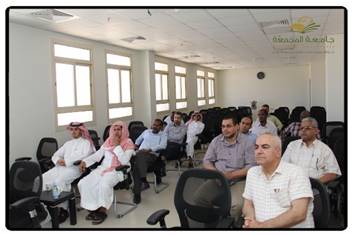
The University Environment and Occupational Health Department provides water quality control service
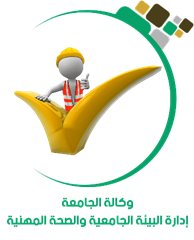
Based on the directives of His Excellency the President of the University and with the continuous follow-up of His Excellency the Vice President of the University, the Department of University Environment and Occupational Health has completed the equipping of the water quality control laboratory, which includes many modern devices that support the conduct of chemical and microbial analyzes that support the control of drinking water quality, and the administration thanks colleagues in the General Administration of Operation and Maintenance for their cooperation and support for the public interest.
The Vice President of the University inspects the water purification plant in the university city in Majmaah
https://www.mu.edu.sa/ar/news/66811
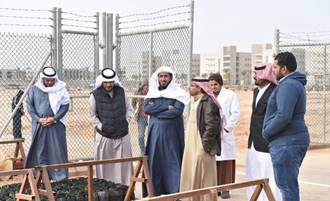
Based on the plan of the University Vice Presidency to follow up and inspect all the technical units of the Vice Presidency to ensure that they provide the services entrusted to them as required, and in line with the directives of His Excellency the President of the University - may God protect him - in this regard, His Excellency the Vice President of the University, Dr. Muslim bin Muhammad Al-Dosari, paid an inspection visit to the water purification and treatment plant, and the water laboratory in the university city in Majmaah, where he was received by His Excellency the Director General of Operation and Maintenance, Mr. Othman bin Hamad Al-Issa, and His Excellency the Director General of the Health Department. Professional and Environment Mr. Abdulelah bin Abdullah Al-Mutairi, His Excellency the Assistant Director General of Operation and Maintenance, Eng. Mohammed Al-Abdulkarim, and a number of the work team in these two departments. During the visit, His Excellency the Undersecretary was briefed on the station's units, which are the reverse osmosis unit, the return water purification unit, the station's automatic control unit, and the water quality control laboratory. His Excellency also visited the wild plants nursery located near the water purification plant, where he saw the types of plants in this nursery, and listened to a detailed explanation of these plants. At the end of the visit, His Excellency the Vice President of the University stated that the water purification plant project is one of the university's outstanding achievements, which it was able to achieve - praise be to God - through the concerted efforts of the various parties in it, expressing his happiness for what he saw of the great achievement in this aspect, and in advance his thanks to the working team for this important vital project.
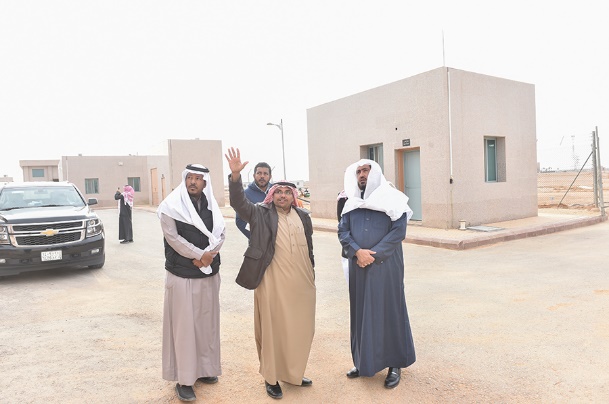
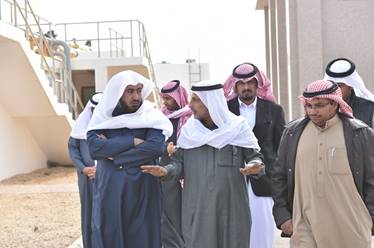
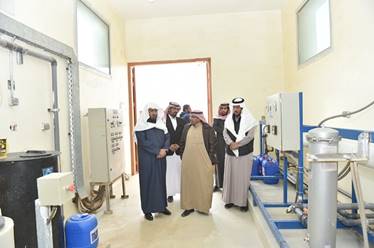
A scientific trip for students of the Department of Mechanical and Industrial Engineering to the water desalination plant
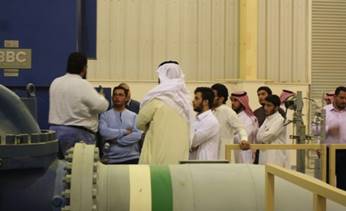
A scientific trip for students of the Department of Mechanical and Industrial Engineering
Based on the college's keenness on compatibility and integration between the theoretical and practical aspects in obtaining useful information for students, the Department of Mechanical and Industrial Engineering at Majmaah University organized, students and faculty members, a scientific student visit to the collected water analysis station in Majmaah Governorate, on 5/2/1437 AH.
The students of the Department of Mechanical and Industrial Engineering were briefed on a detailed presentation of the parts of the station and the function of each part of it, and the different stages that wastewater goes through during treatment, to be discharged to the neighboring environment with the least damage to humans, organisms, plants and the environment, where he stressed that it is ensured that the water resulting from treatment contains elements, gases and solids in unconcentrated and harmless quantities, and that it is used in specific agricultural fields so as to provide consumption from groundwater reserves. To be used for drinking and other important purposes. At the end of the scientific visit, the students expressed that it has contributed to enriching their practical experience in the field of desalination plants, their components and the way they work.
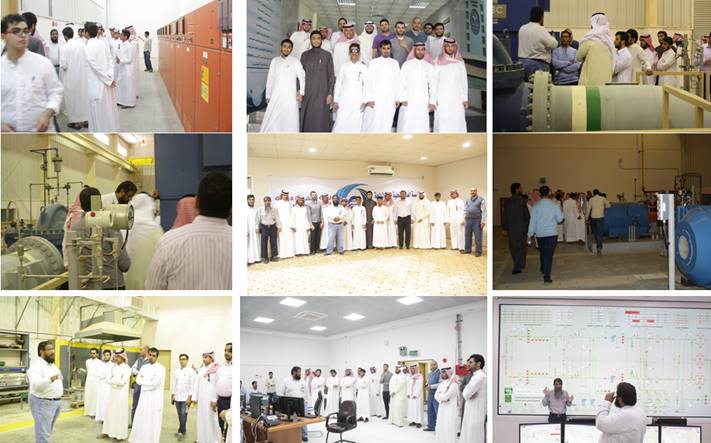
The College of Education in Majmaah holds a training course for employees of the Water Branch in Majmaah Governorate
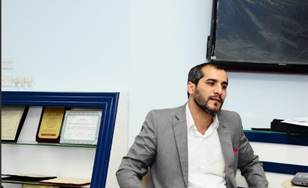
Within the framework of the implementation of the community plan of the College of Education in Majmaah for the year 1437-1438 AH, and based on the college's role in meeting community needs by providing community, training and advisory programs of high standards and distinguished quality, the College of Education in Majmaah, represented by the Vice Deanship for Graduate Studies and Scientific Research, held a training course for employees of the Water Branch in Majmaah Governorate entitled: Time Management), on Sunday, 12/7/1438 AH, presented by Dr. Omar Atiyat.
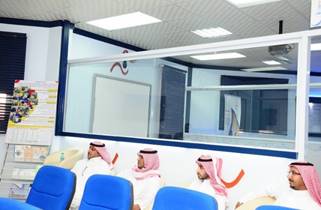
Drinking Water Faucets
https://m.mu.edu.sa/sites/default/files/content-files/dalel%2011.pdf
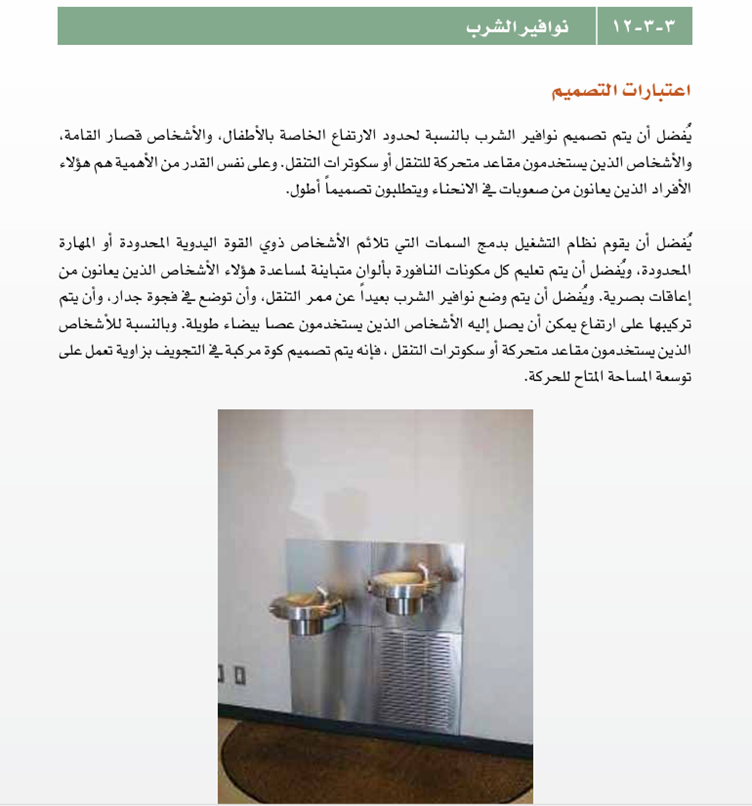
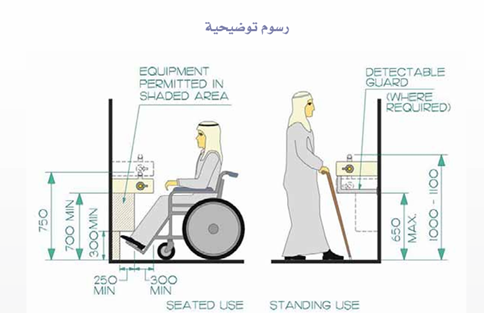
Occupational Health to test MU Facilities' Water
Within the framework of the work plan of the General Department of Occupational Health and Environment to maintain the safety of the university staff and the safety of the surrounding environment, a team of the department took samples of water and tested them in a laboratory to ensure the safety and suitability of water for human consumption.
Vice Rector Inspects Water Purification Station on Campus
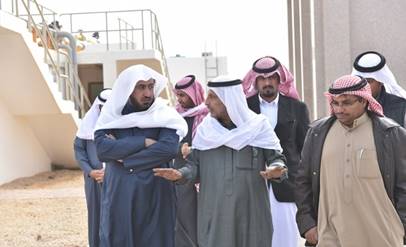
Dr. Musallam Al-Dosari-Vice-Rector of Majmaah University- toured the water purification station and water lab at the main campus where he was welcomed by the Director Operation and Maintenance, Mr. Othman Al-Isa and the Director of Occupational and Environmental Health, Mr. Abdelelah Al-Mutairi. The visit aimed to check the work progress including the Reverse Osmosis Unit, the Auto Unit and the Quality Assurance Unit. He also visited a nursery for wild plants, which is close to the water purification plant, where he saw the types of plants in the Arboretum, and listened to a detailed explanation of these plants. At the end of the visit, he said that the water purification plant project is one of the achievements of the University, made possible by the concerted efforts of different departments. Dr. Al-Dosari, who was detailed about the work, expressed his gratitude for the efforts exerted by the staff and working team.



